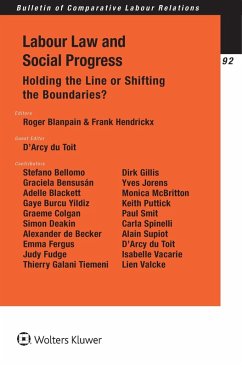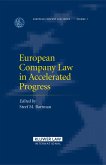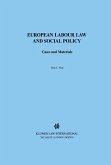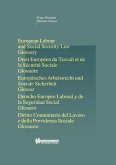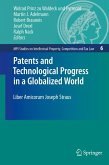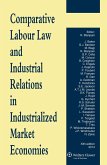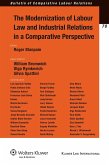For forty years the international watchword has been deregulation of labour law and of social security. Now, however, the rise in unemployment and lack of employment security, the dizzying inequality gulf, and the environmental disasters and mass migrations caused by this deregulation are generating an impetus that defines social justice no longer merely in terms of the equitable distribution of resources, but also - and often primarily - in terms of the just recognition of persons. This collection of incisive essays recognizes that the growing interdependence of all of the people of the earth demands that labour rights are understood as an aspect of human rights, and thus envisaged at the international level.Contributions by twenty outstanding labour law scholars from a range of countries worldwide provide in-depth analysis of such aspects of the debate as the following:- collective action in the interests of market effectiveness as well as fair outcomes for workers;- right to strike;- resilience of trade unions and collective bargaining as mechanisms of labour market regulation;- importance of national policy, despite the influence of global market forces, in shaping national outcomes;- work as the locus of the relationship between humans and nature;- search for a legal foundation for corporate social responsibility;- litigation as an alternative to collective bargaining;- the role of collective labour relations for immigrants and disabled people;- lessons that developed countries could learn from mechanisms pioneered in developing countries in coping with conditions of austerity; and- the trap of soft law and of declarations of intent that weigh lightly in the face of the power of the interests at play in international trade.The essays take stock of the dimensions of the current situation and also explore paths leading to a better achievement of social justice in labour law.These essays recognize that economic development and the pursuit of social justice are interwoven in a quest for social progress that includes mechanisms designed to eliminate unjustifiable inequality. For lawyers and other parties committed to the emerging political will to not only respect fundamental rights, but more broadly improve labour and environmental protection, this book opens abundant avenues that can be pursued in practice and in policy.The volume is based on a selection of papers presented at the 21st World Congress of the International Society for Labour and Social Security Law in Cape Town in 2015.
Dieser Download kann aus rechtlichen Gründen nur mit Rechnungsadresse in A, B, BG, CY, CZ, D, DK, EW, E, FIN, F, GR, HR, H, IRL, I, LT, L, LR, M, NL, PL, P, R, S, SLO, SK ausgeliefert werden.

